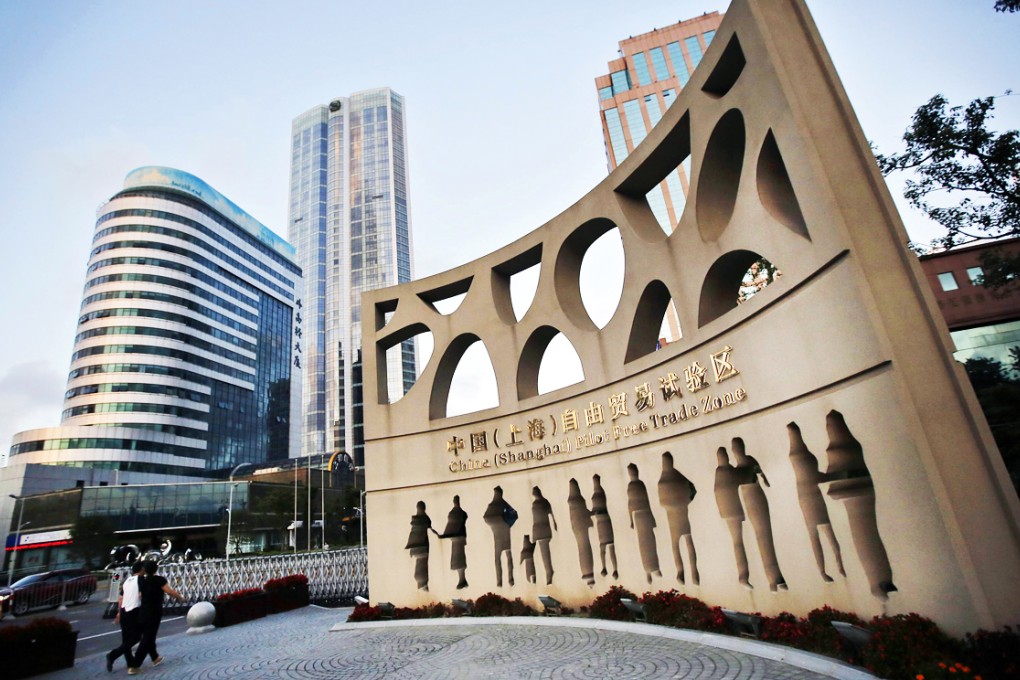Other cities to enjoy certain practices of Shanghai free-trade zone, cabinet says
Experience from city should be copied sooner rather than later, says cabinet

The State Council yesterday published a list of Shanghai free-trade zone (FTZ) policies that could be replicated in other parts of the mainland in an attempt to accelerate liberalising the capital account of the yuan and drastically lifting restrictions on foreign investments.
The cabinet announced on its website that experiences garnered by the FTZ should be copied across the nation sooner rather than later. These included simplified approval procedures for overseas investments, loosened regulations on cross-border cargo flows, further eased conversions between yuan and foreign currencies, widened access for foreign service firms to the mainland market, and a bigger role for market forces.
"The announcement appeared to be a general guideline without detailed measures on how and where to expand the Shanghai policies," said Professor Zhao Xiaolei, head of Shanghai University of Finance and Economics' FTZ research institute. "It is highly expected a fresh round of efforts to bolster FTZ developments will roll out soon."
In late October, President Xi Jinping likened the Shanghai FTZ to "seeds" of economic reforms, while urging policymakers to expand the pilot scheme nationwide.
At the end of last year, the State Council approved three new FTZs in Fujian , Tianjin and Guangdong, while endorsing Shanghai's plan to more than quadruple the geographic size of its zone to 120.7 sq km. After the expansion, it would include the high-profile Lujiazui finance trade zone, dubbed China's Wall Street.
The inclusion of Lujiazui in the FTZ heightened speculation that full convertibility of the yuan was near as Beijing took a substantial step forward in facilitating cross-border investments.